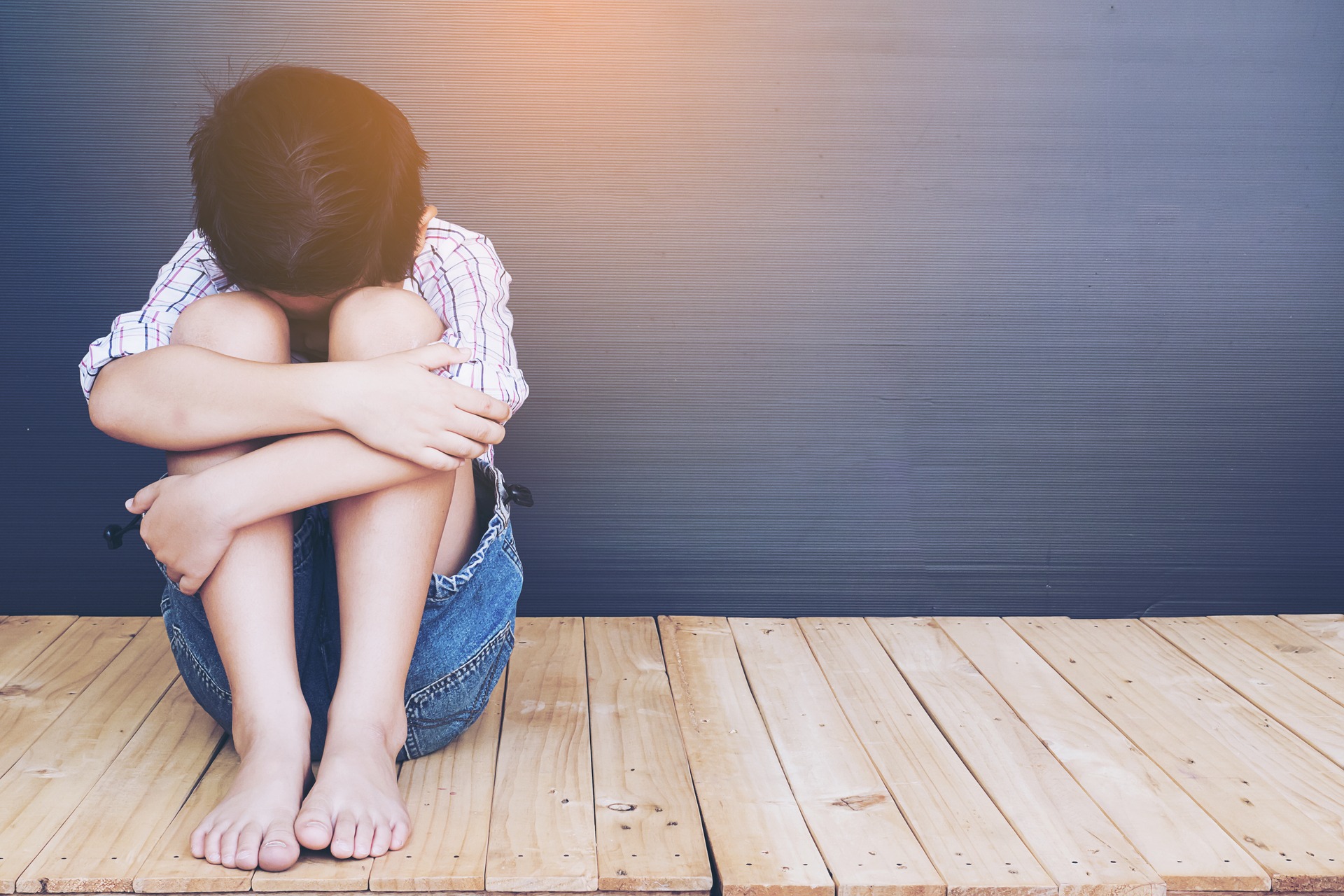How do I know if my child is stressed? How can I help my child with stress?
Everyone gets stressed from time to time, including kids and young people. Stress can be helpful if it means they get the homework done on time, rise to a challenge or push towards an important goal. Exciting events like holidays and new activities can be stressful too.
Short term, positive stress can lead to greater resilience, building new skills, inner strength and determination.
But when can stress become harmful or detrimental and how can you tell?
When is stress a problem in kids and young people?
Intense, long term or sudden unexpected stress can make it more difficult for a child or young person to cope. It’s important they having coping strategies and ways to ‘take a break’ from a stressful situation. Negative or chronic stress can impact mental and physical health (we’ll explain how later).
It’s important as parents to recognise when kids are stressed. Kids aren’t just little adults – it can look different in kids or young people.
- Mood changes: Anger, irritability, short tempered, argumentative
- Acting out and not listening
- Social changes: not wanting to go out and see friends, avoiding social events, not participating, not wanting to go to school
- Sleep: feeling more tired, sleeping more than usual, struggling to get to sleep / waking more frequently
- Appetite: reduced or increased eating
- Illnesses: Getting sick more often as stress can affect the immune system
- Headaches
- Stomach ache
We hear you – some of those symptoms seem like ‘normal life’ with young kids or teenagers. But the take home is – has there been a change? Are these symptoms becoming a more regular problem? Are there potential sources of stress in your child’s life?
It’s always a good idea to get the GP to check them out too if you notice these symptoms and they don’t go away as there may also be an underlying medical reason.
What do children and young people find stressful?
Bear in mind children and young people are not little adults – what we think is ‘no big deal’ could be a source of great stress to them. So, check in and ask your kids. How they are feeling about X or Y.
If they confide in you that something is worrying them, listen. Even if you think it’s a minor issue, not worth getting upset about, try to empathise and not trivialize the way they are feeling.
Sources of stress in children and young people:
- School: new environments, rules and routines, friendship issues, not liking a certain teacher, struggling academically, bullying, tests and grades
- New house: this might seem like an exciting thing but can be unsettling for some children
- New sibling or half siblings: a big change can take a while to adjust to, even if it’s ultimately a positive one
- Family changes: separation, divorce, parent / carer working away, family member illness, new step parent, financial worries in the home
- Teenage years: puberty, relationships, body image, peer pressure, substance and alcohol use, sex
After the COVID pandemic mental health issues among children and young people are at an all-time high for variety of complex reasons.
So how does stress affect their bodies and muscles?
When children or young people are stressed over a longer period of time changes start to happen in their body
- Muscles tension and stiffness
- Jaw clenching / teeth grinding: May be felt directly as facial or jaw pain or indirectly as headaches
- Altered posture: They may stoop, hunch their shoulders, hang their head, move more slowly and less energetically
- Blood flow: Constriction of blood vessels caused by stress affects the blood supply to muscles
- Back pain: Stress is linked with increased risk of chronic low back pain
- Breathing: Changes in the way they breathe – taking more shallow breaths or even breath holding. This impacts on the movement of their ribs and upper back, especially
- Inflammation: Stress has been linked with a heightened inflammatory response (inflammation can cause pain)
- Psychological effects: Stress can lead to an increase in pain intensity (pain perception).
These effects of stress may all be compounded by poor sleep – as a result of pain or from the mental effects of stress or both.
Poor sleep is linked with further inflammation and increased sensitivity to pain. Being in pain or feeling stiff can make them more irritable and less interested in exercise or staying active.
Stress can mean kids and young people withdraw socially too, especially if this is a source of their stress.
All these things, poor sleep, lack of movement and reduced social interactions – further compound the effects of stress.
It’s a vicious circle, that we need to help them to break.
 So how do you break the cycle of stress and improve your child’s health?
So how do you break the cycle of stress and improve your child’s health?
Common stress management techniques include:
- Mindfulness: See resources sections for tips for this with your child / young person. Jigsaws, baking / cooking, sticker books, colouring, getting outside in nature, can all act as mindfulness activities for kids too
- Socialize: Encourage them to spend time with a close / trusted friend
- Meet new people: Join a new club / activity to meet new people and widen social circles outside of school.
- Breathing exercises: See resources section
- Mental health apps and podcasts: See resources section
- Exercise: This can be any movement (walking, running, playing at the park, football in the garden, skipping rope….)
- Diet: A well balanced diet helps to regulate the inflammatory response and avoiding peaks in blood sugars helps to stabilise mood.
- Sleep: Have a regular bedtime routine, consistent bedtime and consistent wake up time. No TV / Screens for at least an hour before bed. Practice some of the mindfulness activities before bed
But have you thought about osteopathy for stress?
Osteopathy for stress

Sometimes the first sign that your child /young person is feeling stressed is when they say they have a headache, tummy ache, stiff neck…..
They may not be able to verbalise how they feel emotionally but the physical symptoms might be more obvious.
Osteopathy can help with this.
Have they got exams coming up? Are they struggling with friendships at school? Have they had a change in homelife? (new step parent, family member illnesses etc).
We can help to:
- reduce tension, pain and stiffness
- improve sleep, due to feeling physically more relaxed and comfortable
- improve ability to move and exercise
- increase blood flow to their muscles
- reduce inflammation
As osteopaths we look at your child holistically. They are a whole person and we support all aspects of their health, well-being, growth and development.
We can help with the physical as well as advising on different types of activity that would be helpful, age-appropriate relaxation techniques, mindfulness apps, referrals onto the GP or for talking therapies if needed.
There are so many ways that osteopathy can help to break the cycle of stress.
We are here to support you and your child. To help them to thrive.
Osteopathy helps to teach them positive relationships of self-care, the value of investing in their health and asking for help and asking for support when needed. These are invaluable life lessons for their future wellbeing too.
Whether they are complaining of pain or not, when it comes to stress, your osteopath is here to support you all.
Book in to see us and let’s see how we can tailor a plan to manage your child / young person’s stress.
Find out more about how we can help your child with stress:
Resources to help your child with stress:
Mindfulness for Kids and Teenagers | Cheadle Osteopathy
What Is Self-Care? | Self-Care And Mental Health | YoungMinds
Stress | The Children’s Society (childrenssociety.org.uk)
Apps:
5 Mindfulness Apps (for Children) | Psychology Today United Kingdom
APPS | CAMHS Resources (camhs-resources.co.uk)
Meditation and Sleep Made Simple – Headspace





